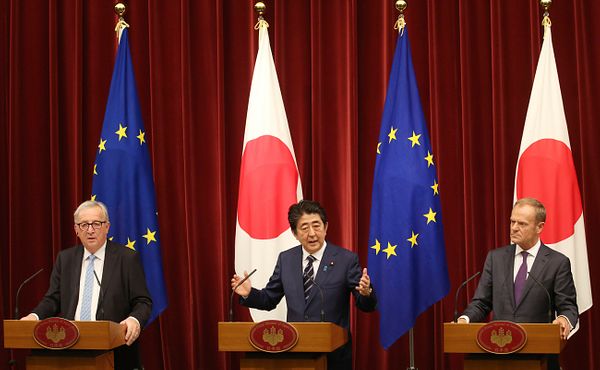[ad_1]
WARSAW/SOFIA/KYIV – Russian energy firm Gazprom said on Wednesday it had halted gas supplies to Bulgaria and Poland for failing to pay for gas in rubles, the Kremlin’s toughest retaliation yet to international sanctions over the war in Ukraine.
Poland confirmed that supplies had been cut, while Bulgaria said it would find out soon. Both accused Gazprom of breaching longstanding supply contracts.
“Because all trade and legal obligations are being observed, it is clear that at the moment the natural gas is being used more as a political and economic weapon in the current war,” Bulgarian Energy Minister Alexander Nikolov said.
Gazprom said in a statement it had “completely suspended gas supplies to Bulgargaz and PGNiG due to absence of payments in rubles,” referring to the Polish and Bulgarian gas companies.
Russian President Vladimir Putin demanded that buyers from “unfriendly” countries pay for gas in rubles or be cut off, starting from the date payments are due for April. The European Union has rejected this demand as rewriting contracts that called for payment in euros.
Poland receives its Russian gas through the Yamal-Europe pipeline from Russia’s huge gas fields in the Arctic far north, which continues west to supply Germany and other European countries. Bulgaria is supplied through pipes over Turkey.
Polish state-owned PGNiG confirmed its supplies from Gazprom had been cut but said it was still supplying its own clients as needed.
“Cutting gas supplies is a breach of contract and PGNiG reserves the right to seek compensation and will use all available contractual and legal means to do so,” the company said.

Supplies from Gazprom cover about 50% of Poland’s consumption and about 90% of Bulgaria’s. Poland said it did not need to draw on reserves and its gas storage was 76% full. Bulgaria has said it is in talks to try to import liquefied natural gas through Turkey and Greece.
Russia’s energy exports had until now continued largely unhindered since the war began, the biggest loophole in sanctions that have otherwise cut off Moscow from much of its trade with the West.
Kyiv has called on Europe to stop funding Moscow’s war effort by cutting off energy imports that bring Russia hundreds of millions of dollars a day.
Germany, the biggest buyer of Russian energy, said this week it is hoping to stop importing Russian oil within days. But weaning Europe off cheap and abundant Russian natural gas, which heats its houses, fuels its factories and drives its electric power plants, would be a far more disruptive prospect.
Andriy Yermak, chief of staff to Ukraine’s President Volodymyr Zelenskyy, said Russia was “beginning the gas blackmail of Europe”.
“Russia is trying to shatter the unity of our allies,” Yermak said.
Russia makes gains in the East
Since the Russian invasion force was driven back at the outskirts of Kyiv last month, Moscow has refocused its operation on eastern Ukraine, starting a new offensive from several directions to fully capture two provinces known as the Donbas.
Ukraine’s general staff acknowledged that Russia had made gains at a number of areas in the east, capturing outskirts of the towns of Velyka Komyshuvakha and Zavody on one front, and the Zarichne and Novoshtokivske settlements in Donetsk region.
Russia’s defence ministry said its missiles had struck an arms depot in Zaporizhzhia region housing weapons from the United States and European countries.
An aide to the mayor of the port city of Mariupol said Russian forces had renewed their attacks on the Azovstal steel plant, where fighters and some civilians are holed up. No agreements had been reached on trying to evacuate civilians from Mariupol on Wednesday, aide Petro Andryushchenko also said.

Ukraine said it had attacked Snake Island, a Black Sea outpost seized by Russia early in the war when defenders became heroes to Ukrainians for rejecting a Russian demand to surrender with an obscenity.
There has been increasing concern over the prospect of the conflict widening to neighboring Moldova, where pro-Russian separatists in a small region occupied since the 1990s by Russian troops have reported several explosions in recent days.
The invasion of Ukraine has left thousands dead or injured, reduced towns and cities to rubble, and forced more than 5 million people to flee abroad.
Moscow calls its actions a “special operation” to disarm Ukraine and protect it from fascists. Ukraine and the West call this is a pretext for an unprovoked war to seize territory.
The United States and its allies have increasingly been supplying Ukraine with heavy weapons for the fight in the east. More than 40 countries met at a U.S. air base in Germany on Tuesday to discuss Ukraine’s defence. Germany announced its first delivery of heavy weapons to Ukraine, including Gepard light tanks equipped with anti-aircraft guns.
Ammunition dump burns in Russia
Blasts were heard in the early hours of Wednesday in three Russian provinces bordering Ukraine, authorities said, and an ammunition depot in the Belgorod province caught fire. The regional governor said the blaze near Staraya Nelidovka village had been put out and no civilians had been hurt.
Russia this month accused Ukraine of attacking a fuel depot in Belgorod with helicopters and opening fire on several villages in the province. A massive fire also broke out this week at a fuel depot in nearby Bryansk. Ukraine does not confirm responsibility for reported incidents on Russian territory.
British military intelligence said Ukraine retained control over most of its air space and Russia had failed to effectively destroy Ukraine’s air force or its air defences.
In a time of both misinformation and too much information, quality journalism is more crucial than ever.
By subscribing, you can help us get the story right.
SUBSCRIBE NOW
[ad_2]
Source link





















